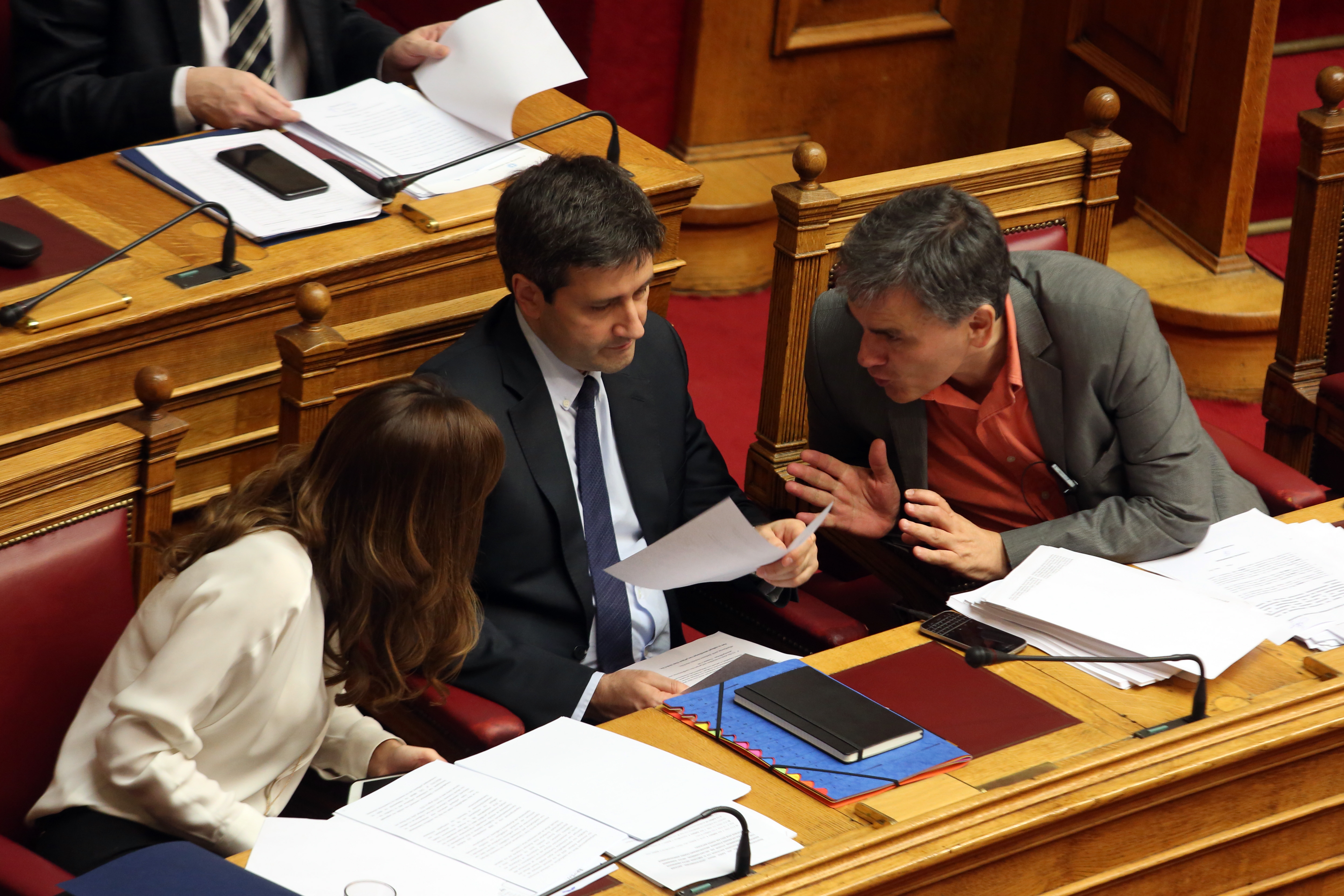The Prime Ministers office and top government ministers have for weeks been cultivating exectations of social welfare handouts, and have publicly declared that the government will not implement pensions cuts that were demanded by creditors and that have already been passed into law.
However, Finance Minister Euclid Tsakalotos and Alternate Finance Minister Yorgos Houliarakis have not only avoided public statements, but are already sending a message that, “Public finances and the economy must not veer away from economic plans.”
With this stance, and through their behind-the-scene contacts with creditors, the two ministers are aiming at setting the economic agenda, and limiting the social welfare measures, to be announced by Prime Minister Alexis Tsipras at the -Thessaloniki International Fair on 8 September – to the framework of the medium-term fiscal programme, which binds the government until 2022.
The prime minister’s office, however, wants to present a four-year programme of social welfare handouts, and to make the announcement before main opposition New Democracy leader Kyriakos Mitsotakis unveils his electoral plans next week at the Thessaloniki International Fair.
Based on the latest data on the course of GDP, the finance ministry will make its assessment and revise fiscal projections for 2019.
The crucial conference
There will be a decisive meeting tomorrow between PM Alexis Tsipras, who wants to find a way not to implement pension cuts, and Labour Minister Effie Achtsioglou, who will present the full picture of the economic condition of the insurance system.
For his part, Tsakalotos clearly prefers a tax cut for businesses and households, and a cut in the insurance contributions of freelance professionals and of employers’ contributions, so as to stimulate the hiring of new employees.
That package is augmented by a hike in the minimum wage and bolstering the OAED unemployment office’s programmes to create jobs.
The difference between the two sides’ philosophy and perceptions is clear:
“Do we give all of the primary surplus that exceeds targets to pensioners, or do we support those with very low pensions by choosing a package of measures to stimulate an increase in employment and growth?”




